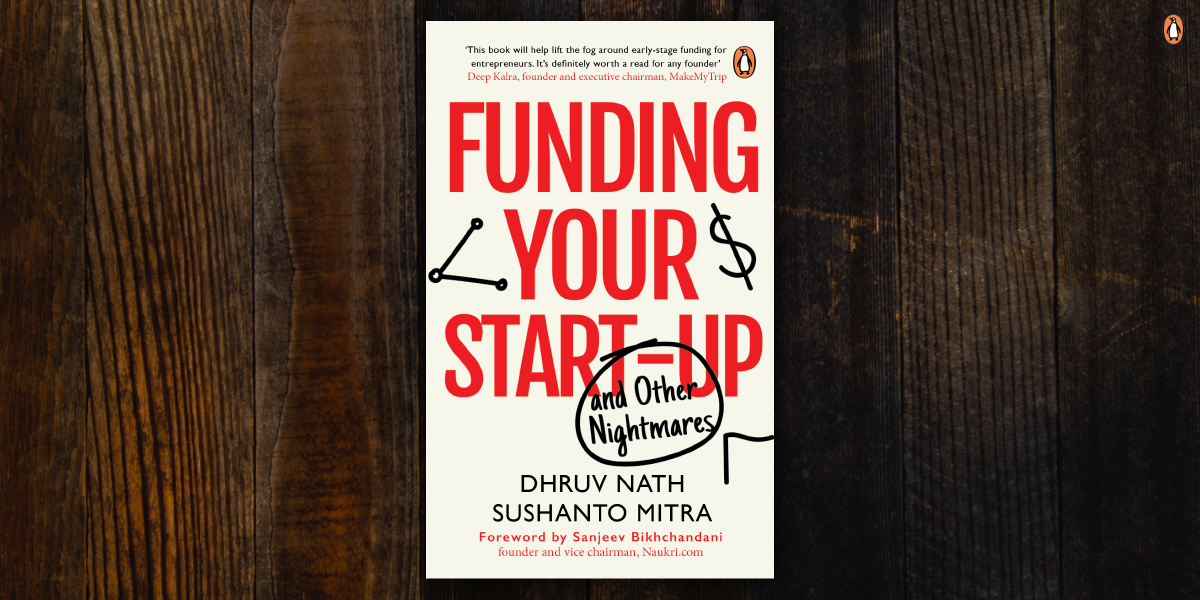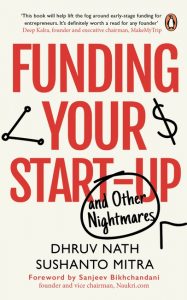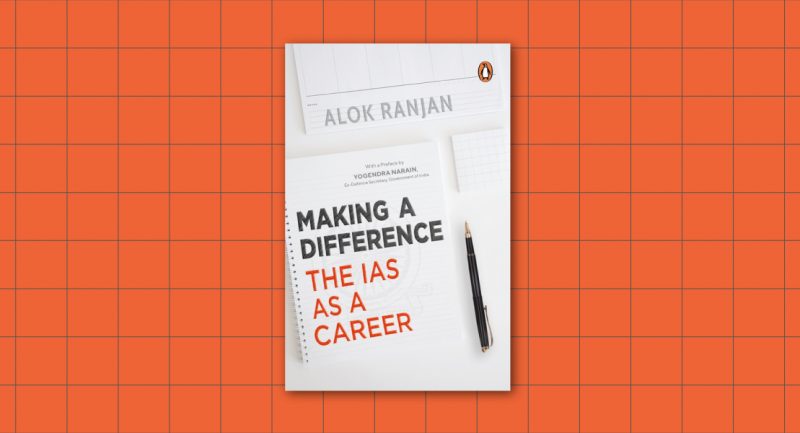
Are you finding it tough to fund your start-up? Especially in the post-COVID-19 world, where money is scarce? Well, then, this book is for you.
It not only takes you through stories of early-stage start-ups and how they successfully managed to raise funding, but also culls important lessons from -start-ups that failed to raise funding for various reasons. The authors also interview some of the most accomplished founders in the world of business, such as Deep Kalra of MakeMyTrip, Yashish Dahiya of PolicyBazaar, Dinesh Agarwal of IndiaMART and Sairee Chahal of SHEROES, bringing their stories together in as useful ‘PERSISTENT’ framework, which helps make a start-up investment-ready. Read on to learn about the people who act as ‘angels’ in start-up heaven!
—
Angel investors are the first external investors in your business. Those who do not know you. Why are they willing to invest in your business? Very simply because they want to make money. They have tried fixed deposits and debt funds, and have learnt that they don’t make more than 7 per cent or so—and, of course, they pay tax on this interest. Some of them have tried out the stock market and made money, but they have realized that stock markets can at best give you around 15 per cent returns over the long term. That’s it. Real estate is a good option, but the amounts involved are very large and the investments are illiquid. And anyway, real estate seems to be stagnating, at least in the foreseeable future . . . And therefore, investors are constantly on the lookout for new avenues of investment. Something that can potentially get them much higher returns than these traditional investment options. Where they can park a small part of their investments, even if the risks are substantially higher. And what better place for this than start-ups? Look at it this way. What are our unicorns such as Flipkart, Oyo Rooms and Ola Cabs valued at? Over a billion dollars each, isn’t it? And in some cases, several billion dollars—Flipkart, for instance, was valued at $21 billion when Walmart bought it. Now, can you buy shares in any of these companies at this valuation? Unless you are a direct descendant of some royal family and have inherited pots of gold, certainly not. But—and this is a very important but—could you have bought shares in these companies when they were toddlers and just about starting off? Aha! Sure you could have.

Funding Your Start-Up
Dhruv Nath, Sushanto Mitra
And that, ladies and gentlemen, is the concept of the angel investor. QED. Angel investors—sometimes simply called angels—are people who are either rich or at least comfortably off, and are looking atinvesting in companies at an early stage. In the hope that they will become the next Flipkart or Naukri.com. And since they have invested at an early stage, they own a large chunk of the company’s shares, whose value could increase dramatically when these companies grow ever so rapidly. So the word ‘angel’ is probably a bit of a misnomer— they are very, very keen to make money. But they are also willing to take a risk. They are, therefore, willing to help you out with funding when your business has not really stabilized and no one else is willing to fund you. And that is how they came to be called ‘angel’ investors. After all, angels are those who help you when you’re in trouble, isn’t it?
—









